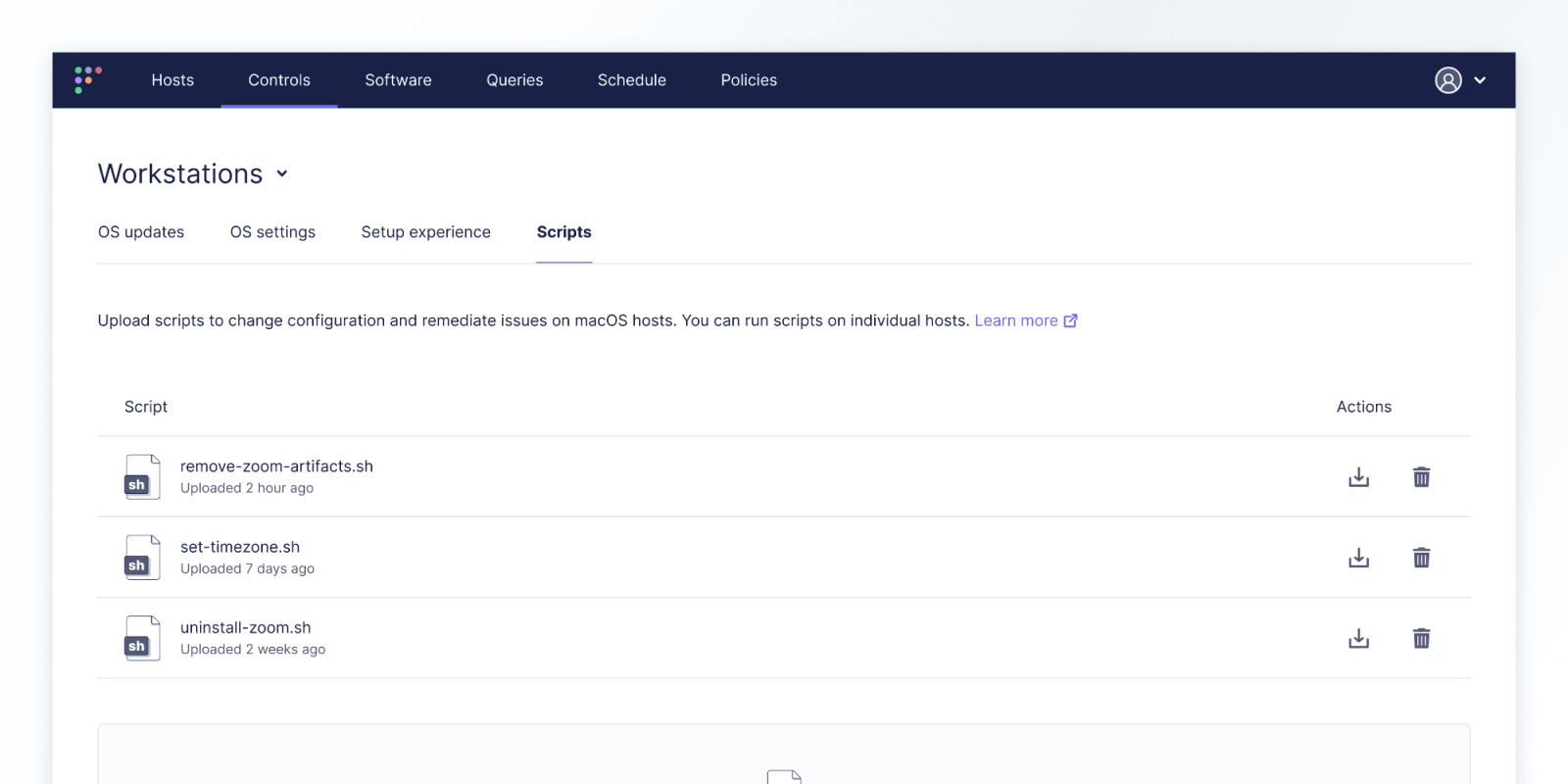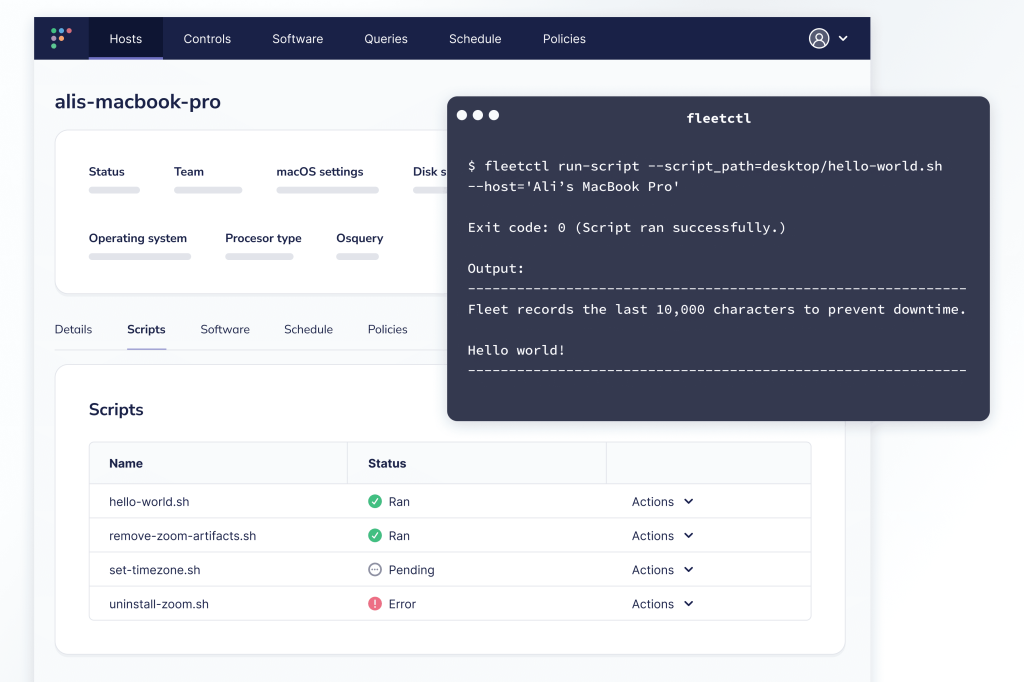
Fleet, the open-source endpoint security company, today announced new script execution capabilities built on its lightweight security agent osquery. The new Fleet APIs allow for easier remediation of vulnerabilities and other endpoint compliance issues on macOS as well as Windows, Linux, and cloud servers in AWS, GCP, or Azure.

Fleet’s aim is to let teams customize their approach to patching and remediation to be more granular. With an opt-in configuration, this new functionality allows IT and security teams to simplify their tools and go to other teams less, saving time and reducing organizational complexity.
“Before, we had to be really conservative on any of the asks to the infrastructure teams putting in the fixes,” says Austin Anderson, Senior Manager on the cybersecurity team at an electric vehicle manufacturer. “Now we can build it exactly the way we want it.”
Fleet allows teams to execute shell scripts via its command line or REST API. They do this by writing a SQL query to discover which hosts have issues, running a script, and then checking the UI or running the query again to confirm, like an automated unit test. Traditionally spread out across multiple systems, Fleet lets people do all of this in one system making it easier to show progress towards security goals.
“Keeping up with the latest issues in endpoint security is a never-ending task, because engineers have to regularly ensure every laptop and server is still sufficiently patched and securely configured. The problem is, software vendors release new versions all the time, and no matter how much you lock it down, end users find ways to change things,” said Nico Waisman, CISO of Lyft. “This means you need a reliable way to run scripts, so you can fix these issues and get through your audits. Seeing this exposed with osquery opens up some interesting options, especially for teams trying to maintain less stuff.”
“The world of IT and security is overflowing with proprietary software, each with its own abstractions and special sauce. It’s easy to get stuck,” said Mike McNeil, CEO and co-founder of Fleet. “I’m pretty technical, and the developer experience in this space makes my brain hurt. It’s not fair to the engineers, it’s risky for the business, and it prevents learning. With Fleet, you can read the source code, and everything is built on top of documented, open APIs (read, write, and execute) that you have direct access to. You can make it do whatever you need.”
I chatted with the team at Fleet on a previous episode of Apple @ Work. Fleet’s underlying technology is based on osquery, which began as an open-source project co-created by Zach Wasserman, CTO and co-founder of Fleet, at Facebook back 2014.
FTC: We use income earning auto affiliate links. More.




Comments